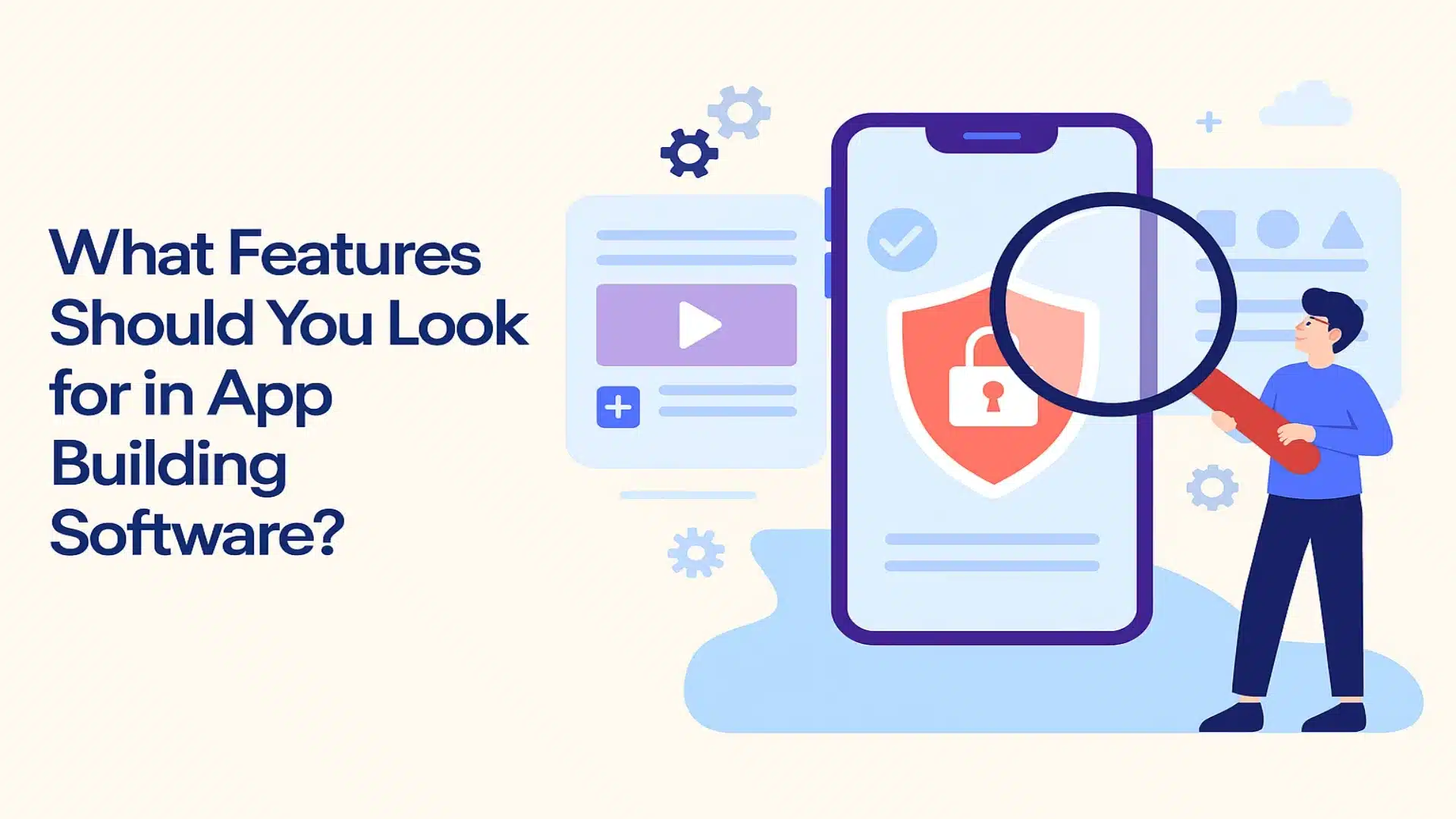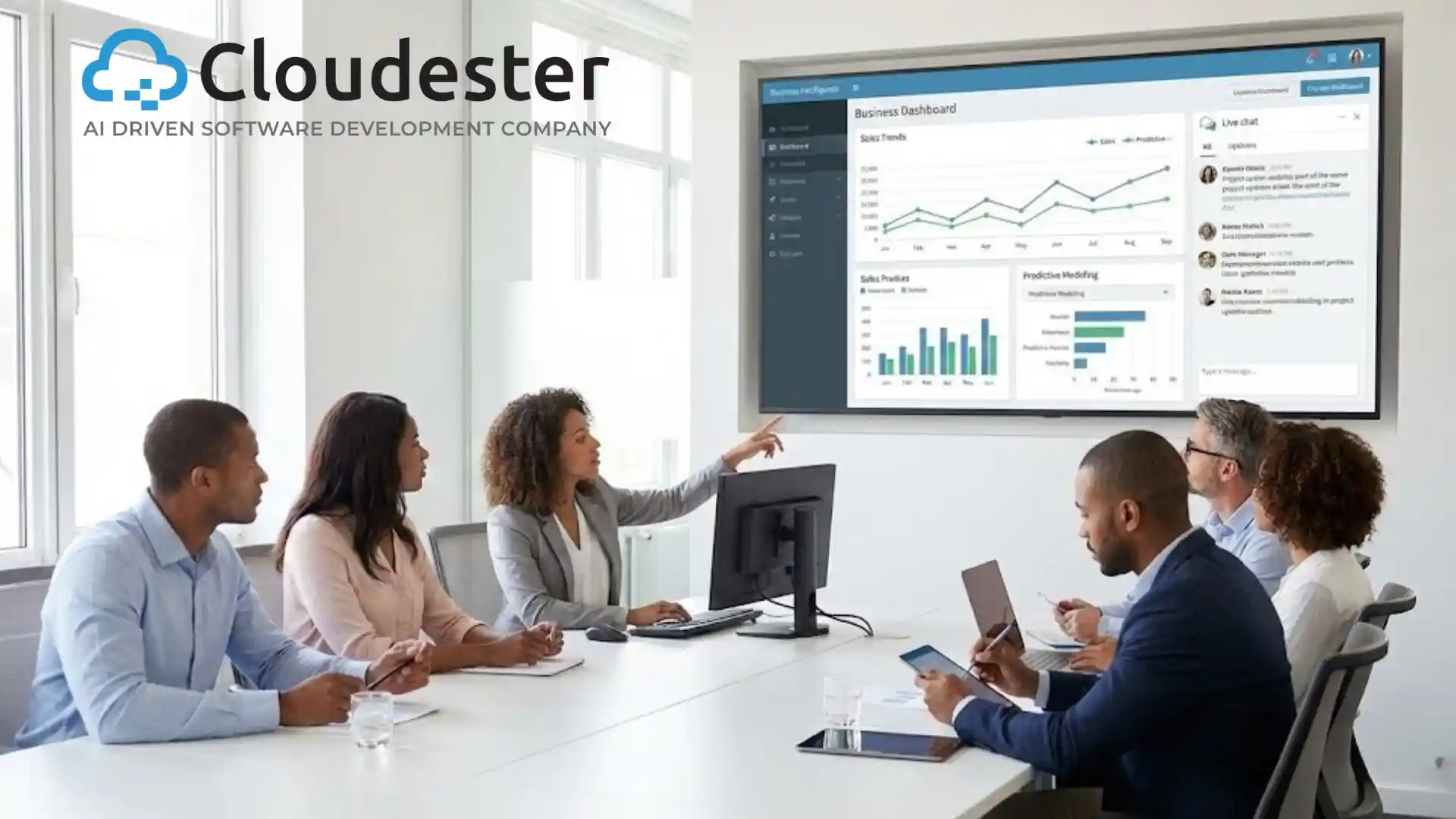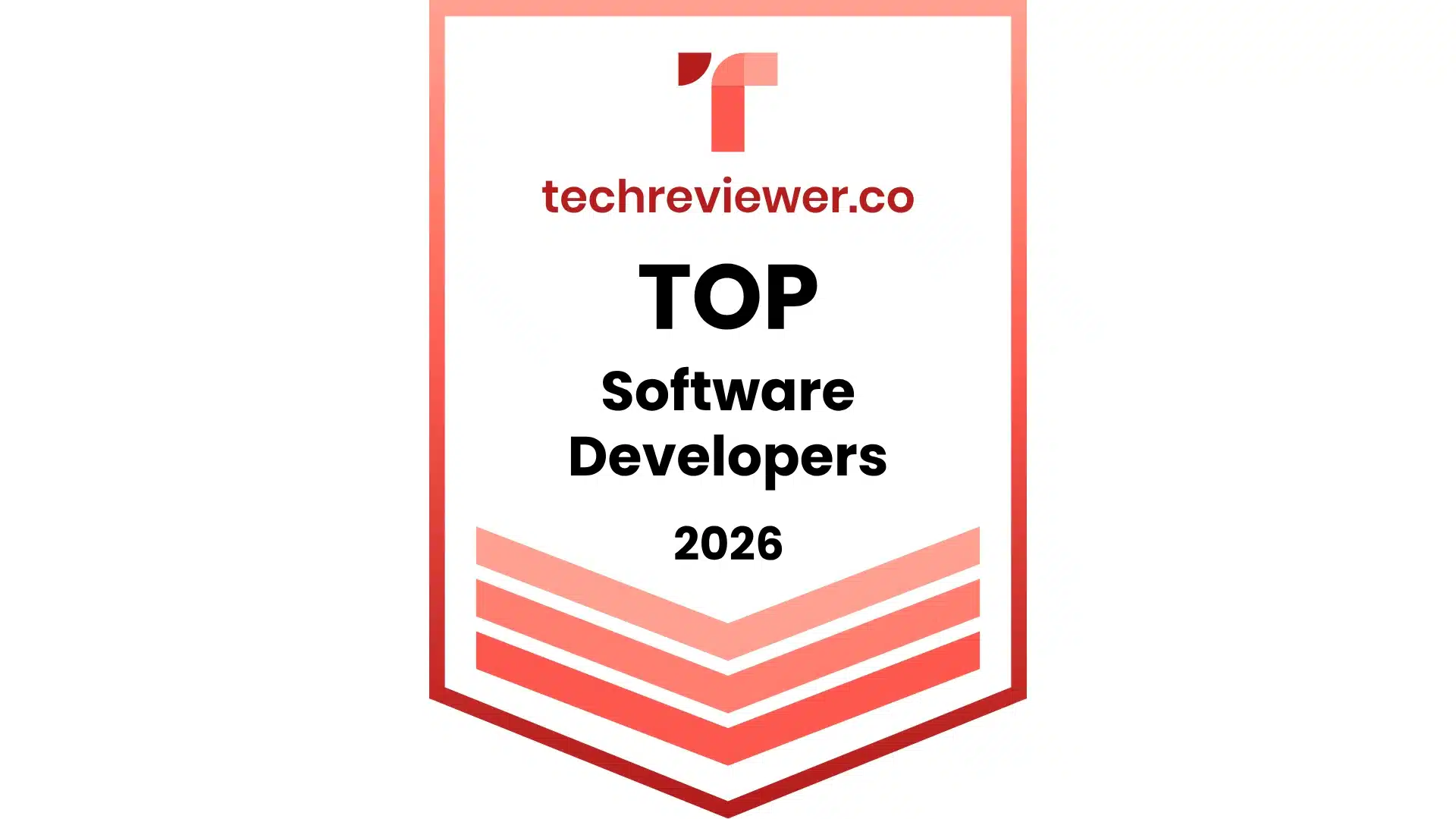What Features Should You Look for in App Building Software?

AI Generated Image : Copilot
Table of Contents
- Key Features to Look for in App Building Software
- Ease of Use & Learning Curve
- Platform & Device Support
- Customization & Flexibility
- Backend & Data Integration
- Scalability & Performance
- Security Features
- Pricing & Licensing Options
- Support & Community Ecosystem
- Case Studies & Real-World Examples
- Conclusion
Choosing the right app-building software is one of the, if not the most important, steps when creating an app. With so many platforms available, and each claiming to make the process easy, it’s normal to feel overwhelmed and confused.
However, instead of getting lost amongst the endless options, it is best to take a step back and reflect on the features that one should actually look out for while looking for an app-building software. And this is where we come in, with the following blog, which delves into the same pointers.
Key Features to Look for in App Building Software
1. Ease of Use & Learning Curve
Let me ask you a quick question- Why do you think most people turn to app-building software?
The only right answer is that the majority want to avoid heavy coding. That’s why ease of use is a must-have.
You must look for platforms with a drag-and-drop builder so you can easily design screens and arrange features without touching complex code.
Moreover, good onboarding tutorials, ready-to-use templates, and clear documentation can save you hours of trial and error. Some platforms also have active community forums where you can ask questions and get advice from other users.
So, look for a platform that is both beginner-friendly and supportive to make your journey much smoother.
2. Platform & Device Support
A great app builder should allow you to publish your app on multiple platforms like iOS, Android, and even as a Progressive Web App (PWA). This will give you the potential to reach the maximum possible audience.
It’s also important to know the difference between native and hybrid apps. Firstly, native apps are built for a specific system, like iOS, and are faster and have more direct access to device capabilities. Hybrid apps, on the other hand, are built from a single codebase and run on several different platforms. They’re less expensive and faster to produce, but they won’t always equal the performance of native apps.
Finally, it depends on your app’s purpose and objective.
Custom AI Software Development Solution For Enterprises
3. Customization & Flexibility
Pre-designed templates are fantastic when you’re just starting off, but if you want your app to stand out, you need flexibility. Perfect software should allow you to fully customize your app’s user experience and design so that it suits your brand.
It should also facilitate complex functionality like conditional flows or workflows.
For example, your application can display different content to different users based on their activity or geographical location. Another requirement is the integration with other services and APIs. This will enable you to connect your application with services you are already using.
Thus, look for companies like Cloudester Software that are known to offer flexible and customizable applications with strong integration support.
4, Backend & Data Integration
As great as your application may be, it’s only as strong as the data that powers it. Look for platforms with a solid backend that features built-in databases and the ability to integrate with external data sources using technology like REST or GraphQL.
Core functionality like user login, payment processing, and push notifications should already be included. They are pre-designed features that reduce your development time and get your app secure from day one.
5. Scalability & Performance
The more popular your app becomes and the more people use it, the more traffic the software has to handle without slowing down. That’s why scalability matters.
Choose a platform with a proven record of supporting high-traffic applications with fast load times and stable uptime. An unresponsive or slow app will quickly lose users. A growth-focused platform will allow your success to not be technology-limited.
6. Security Features
Security is one area you can never cut corners on. The software should provide strong encryption, secure user authentication, and data protection compliance like GDPR.
Regular software upgrades are also a necessity because they protect your app from emerging threats. Reputable providers such as Cloudester Software also place security first, allowing you to worry less while protecting your users.
7. Pricing & Licensing Options
Program-creation software usually offers different levels of pricing. Read what’s included in each plan thoroughly, e.g., number of users, app releases, or being able to use premium features.
Some platforms also support white-labeling, allowing you to remove the platform’s branding and sell your app as 100% yours.
Always look at long-term costs. A plan may cost little today, but will it keep being inexpensive as your app gets popular and you need more advanced features?
8. Support & Community Ecosystem
Even if the platform is simple to use, at some point, you’ll need help. That’s where customer support and community come in.
Look for platforms with multiple support avenues like live chat, email, or a large knowledge base. Active community forums are also essential since you can learn from other people’s learning experiences. A platform that regularly introduces new features and quickly fixes bugs tells you that it has an active ecosystem and reliable team to back it.
Case Studies & Real-World Examples
Before you sign up with an app builder, search for case studies or testimonials if the site offers them.
Examples from real life show how businesses, web stores, or educational apps were successful with that software.
That way, you will better understand how the site is working under real-life conditions and whether it is suitable for your project.
Also read: Must-Have Mobile App Features for Amazing Customer Experiences
Conclusion
Selecting the appropriate app-building platform is an intelligent investment in the app’s future.
By placing a checklist of the most critical features at the top, you can make an informed decision. Start with evaluating the learning curve and ease of use of the platform, followed by support for multiple platforms. Then evaluate its customizability and data integration. Don’t forget to evaluate scalability, performance, and security capabilities as well.
Most providers also provide free trials or demos, which are perfect ways to experience the features of an app building software first-hand. With a cautious approach and looking at reputable developers like Cloudester Software, you will have a tool that not only materializes your app idea but also positions you for long-term success.









